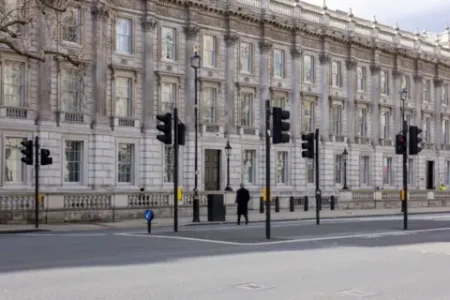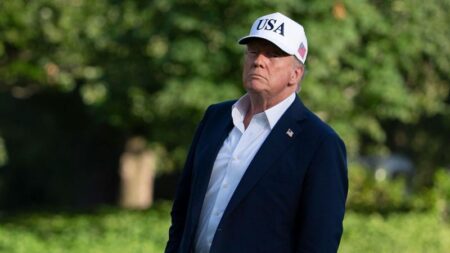The warning from the UK government emphasizes the urgent necessity for the nation to brace itself for potential wartime scenarios. The government, through its newly released national security strategy, indicates that the United Kingdom must be vigilant in “actively preparing for the possibility of the UK coming under direct threat.” As the global landscape evolves, characterized by heightened hostilities, this precautionary stance reflects the changing nature of threats that the nation faces. A key illustration cited by the government is the ongoing war in Ukraine, initiated by Russia, providing a stark reminder of the tangible dangers that confront Britain and its interests.
Further emphasizing the gravity of the situation, the strategic document references “Iranian hostile activity” occurring on British soil, coupled with potential threats from adversaries who are devising plans to jeopardize energy and supply chains. The urgency articulated in the strategy suggests a collective national response, urging an “all-of-society effort” to bolster the UK’s security infrastructure. The government stresses that ensuring national safety will require a concerted and unified approach to enhancing defenses across various sectors.
This renewed focus on security coincides with a significant NATO summit currently taking place in the Netherlands, where leaders from 32 nations are prepared to address common threats. At this assembly, the participating countries are expected to make a commitment to increase their defense spending substantially, aiming for 5% of national income by the year 2035. This figure breaks down into a core military expenditure of 3.5% and an additional 1.5% directed toward broader security concerns. Such goals reflect a strategic pivot towards recognizing the importance of collaborative defense mechanisms in an age fraught with discord.
In his remarks within the House of Commons, Cabinet Office minister Pat McFadden elaborated on the strategy, characterizing it as a “clear-eyed” acknowledgment of the challenges confronting the nation. The strategy outlines a coordinated plan to amplify border security, foster collaboration with international allies, and enhance the United Kingdom’s capabilities in critical domains such as shipbuilding, nuclear energy, and artificial intelligence. Importantly, a significant investment of £1 billion is earmarked for establishing a “new network of national biosecurity centres” aimed at protecting the nation from biological threats.
The strategy’s narrative points to an increasing array of threats emerging from abroad, asserting that the UK faces direct risks from hostile activities including, but not limited to, assassination, espionage, and cyber assaults. It highlights the manipulative tactics employed by adversaries, such as disinformation campaigns and the exploitation of social media to create societal rifts along generational, gender, and ethnic lines. The document incisively notes that vital infrastructure—like undersea communication cables—will continue to be at an elevated risk of targeted attacks.
Alongside these security concerns, the UK is also reevaluating its relationship with major powers, particularly China. McFadden, while discussing the critical nature of the government’s engagement with China, stated that protecting national security and promoting economic interests are essential priorities.
In tandem with this, Foreign Secretary David Lammy addressed Parliament regarding a classified audit concerning the UK’s ties with Beijing. Although the audit remains unpublished, Lammy described China as a “sophisticated and persistent threat,” underscoring the need for the UK to engage with China, as negating contact entirely is not a practical option. This approach, which Lammy termed “progressive realism,” aims to foster cooperation while firmly upholding national security interests.
In response to these developments regarding national security and foreign relations, Conservative shadow foreign secretary Priti Patel criticized the government’s audit as lacking a coherent strategic framework. She emphasized the urgency for a robust diplomatic strategy that defines the UK’s intentions and responses to external geopolitical pressures while highlighting the economic challenges the government currently faces.
This extensive discourse on national security underscores a turning point for the UK as it navigates a landscape fraught with complexities and potential threats, seeking to safeguard its sovereignty and ensure the well-being of its citizens.











